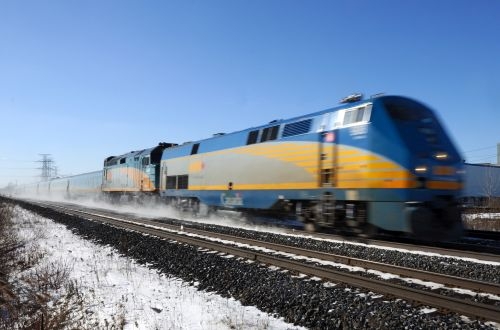Revenue rose by 6.2% from $C 259.6m ($US 200m) in 2014 to $C 275m last year. Total operating expenses fell by 3.3% from $C 597.4m to $C 577.8m cutting Via Rail's overall loss by 11.7% from $C 317.1m in 2014 to $C 280m. As a result Via Rail was able to reduce its requirement for operating subsidy.
Government capital funding increased by 21% from $C 80.9m in 2014 to $C 97.9m in 2015, although this is way below the level of capital funding recorded in either 2011 ($C 224.8m) or 2012 ($C 167.2m).
Passenger-km grew by 1.7% last year from 1.3 billion in 2014 to 1.32 billion, although this is below the figure recorded in 2011 when Via Rail achieved 1.37 billion passenger-km. Via Rail's load factor fell slightly from 60 to 56 in 2015 while punctuality also dropped last year from 76% in 2014 to 71%, continuing a deterioration in punctuality which Via Rail has suffered for the last five years. In 2011, 84% of trains arrived on time.
Nevertheless, Via Rail's outgoing interim chairman, Mr Eric Stefanson, is optimistic. "This year, the government of Canada confirmed additional capital funding of $C 102m for Via Rail," Stefanson says. "This investment will be used to improve the infrastructure VIA Rail owns, as well as services in and around the Ottawa area."
In April Via Rail announced that it is planning to seek federal funding for its proposed $C 4bn upgrade of the Montreal - Ottawa - Toronto line, which would significantly reduce journey times, increase capacity, and improve punctuality on Canada's principal passenger corridor.

